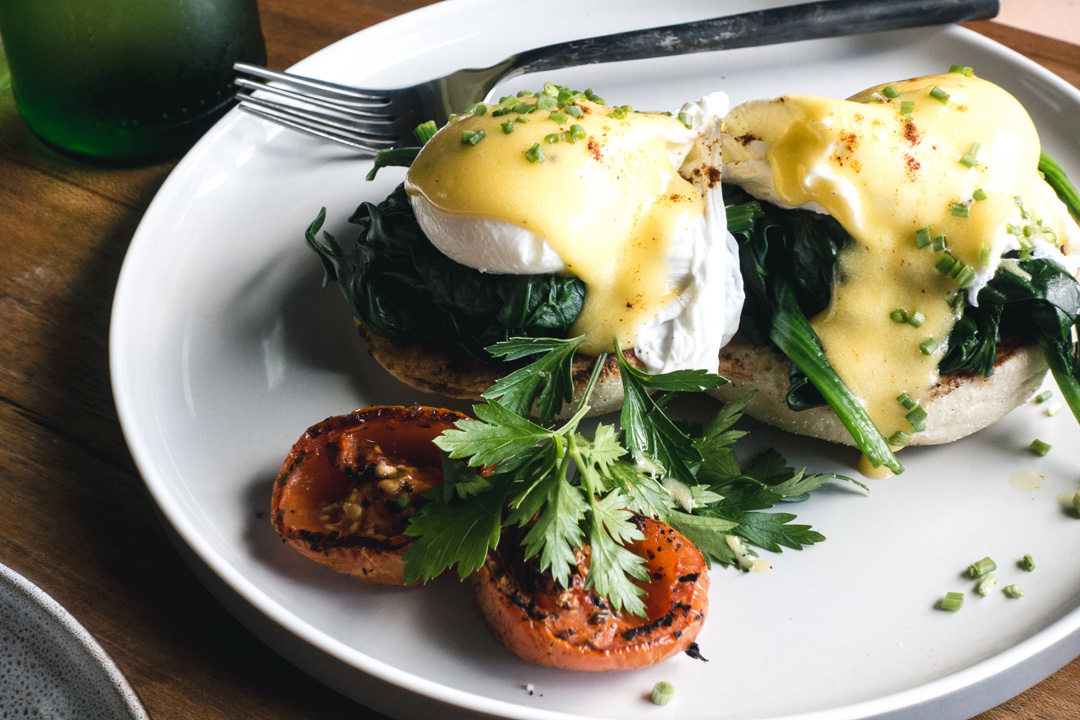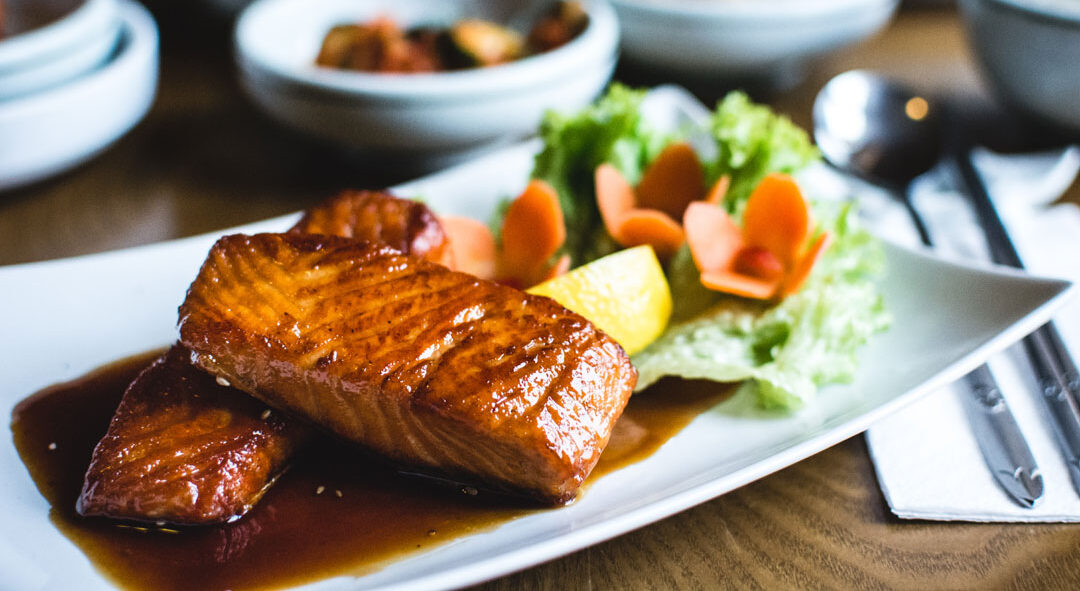Protein 101: Understanding this Essential Nutrient
Protein foods are an essential part of a healthy diet. They play an important role in maintaining our bodies and promoting good health, but what exactly is protein and why is it so important?

Photo courtesy of Pepper Stuckintooth
Today we’ll dive into the basics of protein and uncover why including it in your diet is beneficial.
What is Protein?
Protein is made up of amino acids, which are essentially the building blocks of life. Our bodies need these amino acids to function properly; they are integral elements for growth and development.
They are also used to make hormones and enzymes, muscle tissue, skin, blood cells, and other bodily tissues.
The human body needs 20 different types of amino acids to survive; 9 of these are considered essential because we must get them from food sources since our body cannot make them on its own. Eating foods that contain proteins will provide us with these essential amino acids.
So now that we know what protein is and where it comes from, let’s look at why it’s so important for our health.
The Importance for our Health
Eating foods high in protein help:
- build muscle mass
- boost metabolism
- strengthen bones and teeth
- regulate hormones
- maintain fluid balance in our bodies
- build antibodies to fight infection
- promote healthy skin and nails
- increase energy levels throughout the day
- and the list goes on!
It’s no wonder that nutritionists recommend consuming at least 10-35% of your daily caloric intake from proteins. The exact amount depends on many factors such as age [1], activity level [2], overall health [3], and muscle mass [4]. (Details below.)
Additionally, proteins can help protect us against chronic diseases like heart disease by reducing inflammation in our bodies.
So when you feel like reaching for a sugary snack or processed food item – think twice! Opting for a healthier source of protein instead would be beneficial towards achieving optimal health.
How Much Protein Does My Body Need?
Protein is a critical nutrient for all human beings, but the amount someone needs can vary vastly from person to person.
Generally speaking, the average adult male should have an intake of 56 grams of protein per day, while women should aim for around 46 grams.
Terms like “grams of protein” can seem mysterious! But understanding what this term means isn’t a challenge – quite the opposite, in fact.
Every gram of protein is comprised of tiny building blocks known as amino acids. When we eat proteins such as eggs, fish, or nuts, our bodies break them down into these little molecules. Our bodies then use them to create new proteins that our cells need for everything from muscle contraction to enzyme production.
So if you want to get your daily dose of amino acids and reap all their amazing benefits, just make sure that you are getting plenty of protein-rich foods!
There are countless ways to get adequate amounts of protein each day – from munching on nuts and seeds to adding eggs and fish into your weekly meal plans. Whichever route you take, rest assured that you’ll be ensuring your body has the fuel it needs!
Protein Foods in Consideration of Factors
Every body is unique and different, so it’s no surprise that our dietary needs also differ.
That being said, if someone leads an active lifestyle or is elderly with poor muscle mass, they may need to increase their daily protein consumption accordingly.
1. Why Does My Age Make a Difference?
Age may be a number, but it’s one that plays an important role in determining the amount of protein your body needs. Knowing how much and what types of protein foods to eat is essential for optimal health and energy.
As we get older, our bodies become less efficient at easily breaking down certain proteins due to changes in digestion, metabolism, and appetite. This can all lead to making dietary modifications that adjust for these changes. Thus, it’s important that adults ensure their diets contain enough sources of quality protein from both animal and plant-based sources.
By paying attention to what our bodies need as we age, we can make sure the way we nourish ourselves is as nutrient-rich as possible!

2. How Does My Activity Level Effect My Protein Needs?
Have you ever paused to consider how much protein your body truly needs on a daily basis?
Chances are, the answer is not as straightforward as you may think—the amount of protein your body requires actually depends heavily on how active you are. If you’re constantly on the go, running through work and leisure activities, chances are that your body needs more protein-rich foods than those who remain stationary for most of their time.
That’s why it’s important to take your activity level into account when considering what types of protein foods to add to your diet.
You don’t have to be a couch potato all day long just because you’re eating healthy, but being aware of how much exercise your body gets will certainly help with finding optimal nutrition levels.
3. Why is My Overall Health Important for Protein Foods I Eat?
When it comes to protein intake, it’s important to consider how your overall health plays a role in how much of this nutrient your body requires.
Protein fuels muscles, strengthens bones, and supports organs.
The quality of the proteins you consume will impact your health just as much as quantity – choose high-quality sources like fish, lean meat, nuts, dairy products, and legumes over heavily processed protein foods.
Balancing healthier alternatives with the right amount of food can give you the energy and nutrition you need to support a healthy lifestyle.
4. What’s Muscle Mass Got to Do with It?
Having more muscle mass definitely influences the amount of protein your body needs.
Your muscles are built-up primarily of proteins and need protein to continue growing and functioning. However, it isn’t just in times of growth, such as when bulking or toning that your body requires more proteins, but rather general maintenance calls for a greater usage of protein foods.
Even if you aren’t noticing huge changes in physical size, the fact is that daily activities like working out require the breakdown of muscle fibers which need to be repaired. This process is assisted by larger amounts of your necessary daily amino acids. For this purpose it is something you can obtain from eating a variety of healthy protein sources.
Protein Foods
Eating foods that are rich in protein is essential for maintaining a strong and healthy body!
Whether you’re trying to stay fit, recover from an injury, build muscle, or just get the nutrition you need, you’ll want to make sure your diet includes a variety of protein-packed foods.
- Think dairy like natural yogurt, cheese and milk.
- Meats like beef, pork, lamb and chicken might hit the spot for you.
- Fish and seafood like salmon and shrimp will provide an excellent source of protein.
- Even plant-based proteins, like black beans, legumes and quinoa can be used to get the boost you need.
With an array of forms to choose from, it’ll be easy to create a delicious meal packed with complete proteins that help provide all the essential amino acids your body needs.
More Protein Foods
Don’t forget about:
- eggs
- nuts & seeds
- whole grains
- and even some vegetables, like sun-dried tomatoes and edamame!
Incorporating these varieties into your meals will ensure that you maintain adequate amounts of this essential nutrient in your diet.
(A good resource for checking the amount of protein in particular foods can be found here.)
Side Note: With all the pros and cons of eggs in past years, today we know the answer. Studies reveal that for the majority of people, eggs have little impact on blood cholesterol, and no connection with the risk of heart disease. Good to know!
Protein & Omega-3s from Fish
Eating fatty fish each week or taking a fish oil supplement is an excellent way to get your protein as well as omega-3s, vitamins and other essential nutrients.
Omega-3s play key roles in reducing bad cholesterol, promoting brain health and maintaining healthy skin.
What’s more, with great options like salmon and tuna, getting your daily dose of fatty fish is actually quite delicious.
So why not treat yourself with some wild Alaskan salmon and reward yourself with the benefits of omega-3s while you’re at it!

Photo courtesy of Pepper Stuckintooth
Protein Foods vs Protein Drinks
On the other hand, when it comes to incorporating protein into our diets, we no longer need to rely solely on traditional sources like steak, beans and eggs.
Protein drinks are an efficient and convenient way to fuel our bodies. They are a simple way of adding an extra nutrient boost whenever your body needs it. More than providing essential vitamins and minerals, they can be used to help satiate cravings, as well as managing hunger levels.
Ultimately, these drinks are an easy way to supplement a balanced lifestyle, ensuring your body remains sufficiently supplied with those much needed macronutrients! However, while it may be convenient, protein drinks alone are almost certainly not the healthiest option. Having nothing but this liquid in your diet means you can miss out on the other vital elements you will find in protein foods.
The best way to keep healthy is to eat a balanced diet, one that includes a variety of sources of protein. This is the ultimate way to provide your body with the essential nutrients it needs for optimal functioning.
As always – moderation is key when it comes to nutrition!
That being said – if you’re looking to add more protein into your diet, you may want to consider consulting a registered nutritionist. That way you can get tailored advice based on your individual needs and goals.
